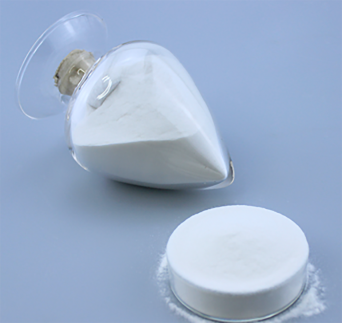
Th12 . 23, 2024 20:47 Back to list
Applications and Benefits of Hydroxyethyl Cellulose in Various Industries
The Use of Hydroxyethyl Cellulose in Various Industries
Hydroxyethyl cellulose (HEC) is a water-soluble ether derived from cellulose, a natural polymer found in the cell walls of plants. Due to its biocompatibility and unique properties, HEC has gained popularity in a multitude of applications, ranging from pharmaceuticals to cosmetics, food products, and construction materials. This article explores the diverse uses of hydroxyethyl cellulose and its significance in various industries.
Pharmaceutical Applications
In the pharmaceutical field, HEC serves as a vital excipient in drug formulations. Its viscosity-modifying properties enhance drug solubility and stability, making it an essential component in oral liquids, gels, and suspensions. HEC acts as a thickening agent, improving the consistency and palatability of syrups and other liquid formulations. Moreover, HEC's ability to form films is exploited in the creation of sustained-release drug delivery systems. This characteristic allows for controlled release, ensuring that the active ingredients are available over an extended period, which can enhance therapeutic efficacy and patient compliance.
Cosmetics and Personal Care
The cosmetics industry extensively utilizes HEC as a thickening agent and stabilizer in a variety of products, including lotions, creams, and shampoos. Its water-retaining capacity helps to maintain moisture levels in formulations, which is critical for skincare products aimed at hydration and rejuvenation. Furthermore, HEC is known for its skin-conditioning properties, making it a popular choice in facial masks and moisturizers. Its non-toxic nature and compatibility with other ingredients allow formulators to create products that are gentle on the skin while providing the desired functional benefits.
Food Industry
use of hydroxyethyl cellulose

Hydroxyethyl cellulose also plays a significant role in the food industry, where it acts as a food additive. HEC is commonly used as a thickener, stabilizer, and emulsifier in various food products such as sauces, dressings, and dairy items. Its ability to improve texture and mouthfeel enhances the sensory properties of food products, which can positively impact consumer acceptance. Additionally, HEC's role as a low-calorie thickening agent is particularly appealing in the formulation of reduced-fat or low-calorie foods. The versatility of hydroxyethyl cellulose enables food manufacturers to meet changing consumer demands for healthier, cleaner-label products.
Construction and Building Materials
In the construction sector, HEC is employed as a critical ingredient in adhesives, sealants, and mortars. Its properties impart enhanced workability and adhesion, which are essential for a wide range of construction applications. HEC's water-retention ability helps prolong the setting time of mortars and cement-based materials, allowing for better placement and finishing. Additionally, HEC can improve the resistance of formulations to sagging and cracking, leading to more durable and reliable building materials.
Environmentally Friendly Solutions
One of the notable advantages of hydroxyethyl cellulose is its biodegradable nature. As industries increasingly shift toward sustainable practices, HEC presents an environmentally friendly alternative to synthetic polymers. Its natural origin and biodegradability align well with global trends toward sustainability and reduced reliance on petrochemical-derived materials. This positions HEC as a key player in developing eco-friendly products across various sectors.
Conclusion
Hydroxyethyl cellulose is a versatile and valuable ingredient across multiple industries. From pharmaceuticals and cosmetics to food products and construction materials, its unique properties contribute significantly to product performance and consumer satisfaction. The ongoing research and development surrounding HEC suggest that its utilization will continue to expand, particularly as industries focus on innovation and sustainability. As we move forward, the role of hydroxyethyl cellulose will likely become even more prominent, showcasing its adaptability to meet the needs of a dynamic marketplace.
-
Versatile Hpmc Uses in Different Industries
NewsJun.19,2025
-
Redispersible Powder's Role in Enhancing Durability of Construction Products
NewsJun.19,2025
-
Hydroxyethyl Cellulose Applications Driving Green Industrial Processes
NewsJun.19,2025
-
Exploring Different Redispersible Polymer Powder
NewsJun.19,2025
-
Choosing the Right Mortar Bonding Agent
NewsJun.19,2025
-
Applications and Significance of China Hpmc in Modern Industries
NewsJun.19,2025







